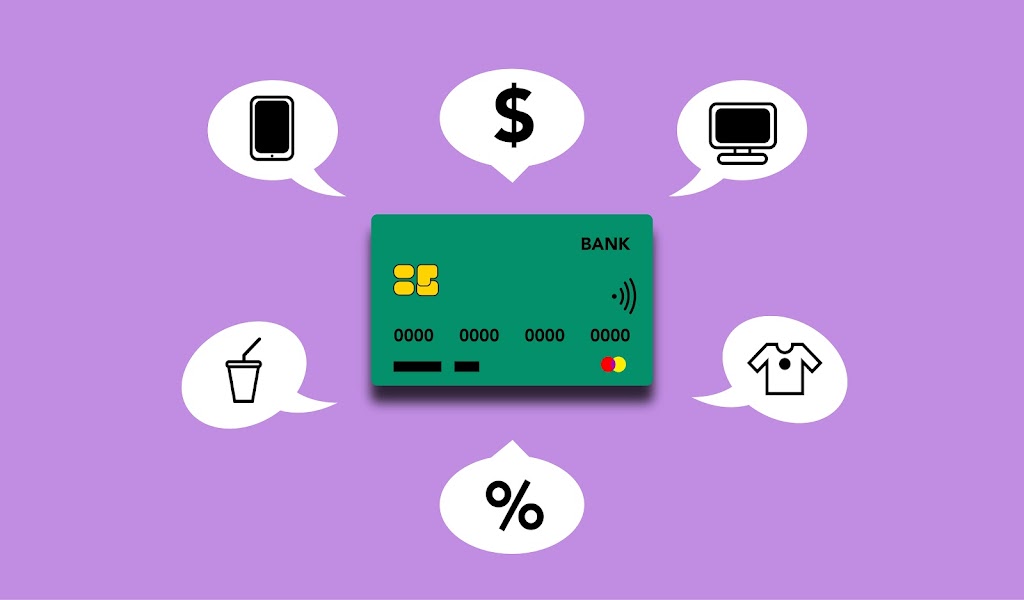Negotiation
is a strategic discussion that resolves an issue in a way that both parties
find acceptable. It should always be done with the goal of reaching a mutually
beneficial agreement.
If
you’re like most business professionals, you’re probably familiar with the
basics of negotiation. However, even if you’re an experienced negotiator,
there’s always room for improvement. This is because negotiation is a strategic
discussion that resolves an issue in a way that both parties find acceptable.
It should always be done with the goal of reaching a mutually beneficial
agreement.
There
are a few things you can do to prepare for negotiations, and make sure you come
out on top. First, research your opponent and understand their motivations.
Second, be prepared to think on your feet and be responsive to the other party.
Finally, never give away too much information early on in the discussion.
Negotiation is a strategic discussion that resolves an issue in a way that both
parties find acceptable. It should always be done with the goal of reaching a
mutually beneficial agreement. By definition, negotiation is a two-way
street, and both parties need to be engaged and willing to negotiate in order for
anything to happen. If one party is unwilling to negotiate, then there is
nothing that can be done except wait for the issue to be resolved in a
different way.
Negotiating
a job offer, asking for a raise, making the case for a budget increase, buying,
and selling property or equipment, and closing a sale with a customer are just
a few examples of the many deals you might be involved in. Negotiation is a
strategic discussion that resolves an issue in a way that both parties find
acceptable. It should always be done with the goal of reaching a mutually
beneficial agreement. There are a few things you can do to prepare for
negotiations, and make sure you come out on top.
Negotiating
a job offer, asking for a raise, making the case for a budget increase, buying
and selling property or equipment, and closing a sale with a customer are just
a few examples of the many deals you might be involved in. In each of these
cases, it’s important to be prepared before entering into negotiations. This
means knowing what you want, what you’re willing to concede, and what your
bottom line is. Once you have this information, you can start thinking about
the best way to get what you want out of the negotiation.
If
you’re not confident in your ability to strike an effective deal or want to
improve the outcome of future negotiations, there are a handful of skills you
need in your arsenal. One of the most important things you can do is develop a
strong sense of self. This means being able to stand up for what you believe
in, and not being afraid to negotiate from a position of strength.
Additionally, always be prepared to probe and ask questions.
If
you’re not confident in your ability to strike an effective deal or want to
improve the outcome of future negotiations, there are a handful of skills you
need in your arsenal. One of the most important things you can do is develop a
solid negotiating strategy. This involves knowing what you want, what you’re
willing to concede, and what your bottom line is. Once you have this
information, you can start thinking about the best way to get what you want out
of the negotiation.
If
you’re not confident in your ability to strike an effective deal or want to
improve the outcome of future negotiations, there are a handful of skills you
need in your arsenal. One of the most important things you can do is practice,
practice, practice. This isn’t just for negotiations-any situation where you
need to come up with a solution and present it to another person can benefit
from practice. Additionally, research the topic you’re negotiating.
Enhancing
your negotiation skills has an enormous payoff, says Harvard Business School
Professor Michael Wheeler in the online course Negotiation Mastery. “It allows
you to reach agreements that might otherwise slip through your fingers,”
Wheeler says. “Learning how to negotiate effectively gives you the power to get
what you want in nearly any situation.” Wheeler’s course, which is available to
students worldwide, covers topics such as how to identify and assess your negotiating
position, how to structure and deliver a winning proposal, and how to close the
deal successfully.
Here’s
a list of six essential skills for mastering the art of negotiation, along with
ways you can develop your knowledge and confidence. First, always be prepared
to probe and ask questions. This involves having a firm understanding of what
you want and what you’re willing to concede. Additionally, research the topic
you’re negotiating.
Communication
Make
sure you’re able to articulate your thoughts and concerns in a way that the
other party can understand. This means being clear and concise with your words,
using active listening and paraphrasing when needed, and avoiding jargon and
technical terms. Additionally, be sure to keep the conversation upbeat and
positive. Negotiating a deal is a marathon, not a sprint.
Being
able to communicate your vision and goals is key to a successful negotiation.
This means being clear about what you want and what you’re willing to concede,
and making sure everyone involved understands what’s at stake. There are a
variety of ways to communicate your position, and the best way to find out is
by trying out a few different methods. Trycasforming the negotiation into a
dialogue, using storytelling, or diagramming the situation.
Effective
communication skills not only allow you to engage in a civil discussion, but
also improve the chances of reaching an agreeable solution. “Effective
communication is the foundation of all successful negotiations,” says Harvard
Business School Professor Michael Wheeler in the online course Negotiation
Mastery. “It allows you to engage in a civil discussion with other negotiators
and work toward an agreeable solution.” Wheeler’s course, which is available to
students worldwide, covers topics such as how to identify and assess your
negotiating position, how to structure and deliver a winning proposal, and how
to close the deal successfully.
In
order to be an effective negotiator, you need to be able to see both sides of
the issue and find common ground. This means being able to articulate your
thoughts and actively listen to others’ ideas and needs. Without this skill,
key components of the discussion can be overlooked, making it impossible for
everyone to leave the negotiation satisfied. To hone your active listening
skills, try practicing “active listening” exercises, which involve focusing on
the speaker, making eye contact, and paraphrasing what the other person has
said to ensure understanding.
Emotional
Intelligence
Emotions
can play a role in negotiation, for better or worse. While it’s important not
to let them get in the way of reaching a mutually beneficial deal, you can use
them to your advantage. For example, you might be able to get your counterpart
to agree to a deal they might not have otherwise. If you know what your
opponent is feeling, you can take advantage of it.
In
order to be successful in negotiations, it’s important to understand your
emotions. emotions play a role in negotiation, for better or worse. While it’s
important not to let them get in the way of reaching a mutually beneficial
deal, you can use them to your advantage. By knowing what emotions are normal
for you, you can better manage them.
Emotions
can play a role in negotiation, for better or worse. While it’s important not
to let them get in the way of reaching a mutually beneficial deal, you can use
them to your advantage. Positive emotions have been shown to increase feelings
of trust at the bargaining table, while feelings of anxiety or nervousness can
be channeled into excitement. It’s important to understand your emotions and
how they might impact your ability to negotiate.
Planning
Planning
ahead with a clear idea of what you hope to achieve and where your boundaries
lie is an essential step in any negotiation. By understanding what you hope to
achieve, you can develop a clear idea of what your bottom line is, and what you
are willing to give up in order to achieve your goal. This will help you to
stay focused during the negotiation process and prevent you from giving up too
much ground.
The
first step in any negotiation is to have a clear idea of what you hope to
achieve, what your boundaries are, and what you are willing to give up. This
helps you to avoid making any concessions that you may later regret. It is also
important to be aware of the other party’s goals and interests, as this will
help you to find common ground and reach a mutually beneficial agreement.
Any
negotiation, no matter how small, requires some amount of planning. This is
especially true when the negotiation is with a person or institution that you
have no prior relationship with. In these cases, it is helpful to have a clear
idea of what your goals and boundaries are before getting into the negotiation
itself. This way, you can be sure that you are not conceding more than you are
comfortable with and that you are not asking for something that is completely
out of the realm of possibility.
Value
Creation
Creating
value in a negotiation is one of the most powerful skills you can add to your
toolkit. By creating value, you are able to create a positive outcome that
benefits both you and the other party. This can be done in a number of ways,
but the most important thing is to be creative and find a way to benefit the
other party in some way. Some common examples of value creation include
providing information, offering advice, or providing a service.
By
creating value in a negotiation, you are able to strengthen your position and
increase the chances of reaching a mutually beneficial agreement. There are
many different ways to create value, and the key is to find something that is
of interest to the other party. This can be anything from offering a unique
perspective on the issue at hand to creating a new market for their product. By
taking the time to find value, you are making sure that the other party is
interested in working with you, and that the negotiation will be productive.
Reflection
After
each negotiation—successful or not—reflect on what went well and what could
have gone better. I suggest that you keep a journal of your reflections, to
help you track your progress over time. Doing this will also help you to notice
patterns in your behavior. For example, you might find that you tend to be a
bit too forceful in some situations and that this causes people to react to
you defensively.
A
good tool to use at this stage is called the “Plus, Delta, and Next Time”
analysis. This analysis involves thinking about the last negotiation you were
in and answering the following questions. Plus: What went well?





